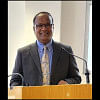Let’s invest to compete globally

The Bangladesh Investment Summit 2025, held recently by the Bangladesh Investment Development Authority (BIDA) to attract foreign investment, was a laudable move. The summit has hopefully branded our country as a friendly nation, demonstrated our spirit and culture, facilitated our integration with the world, and countered the negative narratives. We welcome foreign investments that contribute to our economic growth.
Foreign and domestic investments have been contributing to our economic development since Bangladesh was a part of Pakistan. It has also created an entrepreneurial class that has amassed huge wealth through corruption and political power. The rise of the so-called 22 families in Pakistan was possible because of state-sponsored economic development projects. Today, that number is 10 times greater, and they have grown during various regimes under Sheikh Mujibur Rahman, Ziaur Rahman, HM Ershad, Khaleda Zia, and Sheikh Hasina. How will it be different this time?
Foreign investment must be compatible with our national, political, economic, social, and foreign policy goals. It must also be conducive to our culture. No country or investment should get priority because of vested interests. The forthcoming investments should not be a source of renewed corruption or money laundering. We don't want to see the rise of another group of entrepreneurs exploiting national resources for political gains. We hope reform, transparency, and patriotic leadership will ensure that.
Unfortunately, in Bangladesh, economic growth has triggered rapid and chaotic urbanisation, developed high-rise buildings, favoured a middle class, and imported lots of cars, contributing to pollution and traffic jams—all corollary effects of unplanned growth. Despite various governmental and non-governmental programmes, the rural poor did not seriously benefit from the development dividends. This situation can be improved by investments targeting economic deceleration projects, e.g. microcredit.
The time has come to think about investments a little differently. Investments, foreign or domestic, must aim at enhancing the competitiveness of the country globally. They should improve people's well-being through both wealth creation and wealth distribution. A good number of investments have utilised our inexpensive labour force. However, they did not significantly target value-added industries. Our skill set has not changed. We still rely on the low-wage workers to improve our balance of payments (BOP) account. This must change.
To enhance our competitiveness, we need to create domestic demand. The expenditure and investment, be it from local government or foreign sources, should also aim at increasing income-generating spillovers contributing to domestic demand. The export-led low-wage investment policy has its limitations. Relying heavily on them is risky. Global economic downturns can create havoc in such industries. Domestic demand is a sound backup and a multiplier; it will augment growth in the long run.
People are one of our greatest assets. We have a rich, trainable, youthful workforce. To compete in a globalised world, uplifting their skills is necessary. We should prepare them for value-added industries. Japan, Korea, Singapore, and lately India and China are good examples in this regard. We can learn from their strategies and invest in our manpower. This may require substantial investment in our universities, trade schools, and training sectors. Why not take proactive measures to attract investment in these sectors? It will enhance our long-run competitiveness.
We are a small country. We cannot give away our agricultural land for disproportionate industrial or service sector growth. For example, do we need a 100-acre hospital to serve a few urban elites? Investments must not be shadowy land-grabbing projects. We should aim for a decentralised investment/growth strategy. Decentralised investments should help district-centred development, prioritising modern schools, colleges, health facilities, and complementary services. This would augment both labour quality and domestic demand. Not too long ago, the zilla schools were the cornerstone of our education system and a major component of the workforce.
Enhancing national competitiveness requires supporting infrastructure conducive to investment and economic development. It is an ongoing process. So far, our investment in infrastructure has been on various roads, highways, bridges, railways, and communication. Let us add our rivers and waterways to that list. Again, our immediate concern should be people and their connectivity with the world. Digital sectors should lead our future. Investments in new projects and upgrading existing networks should continue.
For defence purposes, Bangladesh will also have to invest in modern defence systems. Recent wars in various parts of the world have revealed the weakness of conventional weapons. Drones, laser guns, and missiles are relatively straightforward to develop these days. The technology is available, and we have the manpower to produce them. Investment in a strong military industry will give us a strategic advantage in defence.
Industrial growth has a negative correlation with the environment. We must pay attention to the environment as we seek economic growth. We can invite foreign investment to counter environmental degradation. This would include establishing recycling facilities, modernising ports, dredging rivers, digging canals, etc. Keeping our land, air, and water clean must be the target for this purpose.
Bangladesh is a peace-loving, friendly nation. We have the potential to be a globally competitive country politically, economically, and militarily. Let us encourage investments, both domestic and foreign, that complement our global competitiveness.
Dr Abu NM Waheeduzzaman is professor of marketing and international business at Texas A&M University-Corpus Christi.
Views expressed in this article are the author's own.
Follow The Daily Star Opinion on Facebook for the latest opinions, commentaries and analyses by experts and professionals. To contribute your article or letter to The Daily Star Opinion, see our guidelines for submission.

 For all latest news, follow The Daily Star's Google News channel.
For all latest news, follow The Daily Star's Google News channel. 








Comments